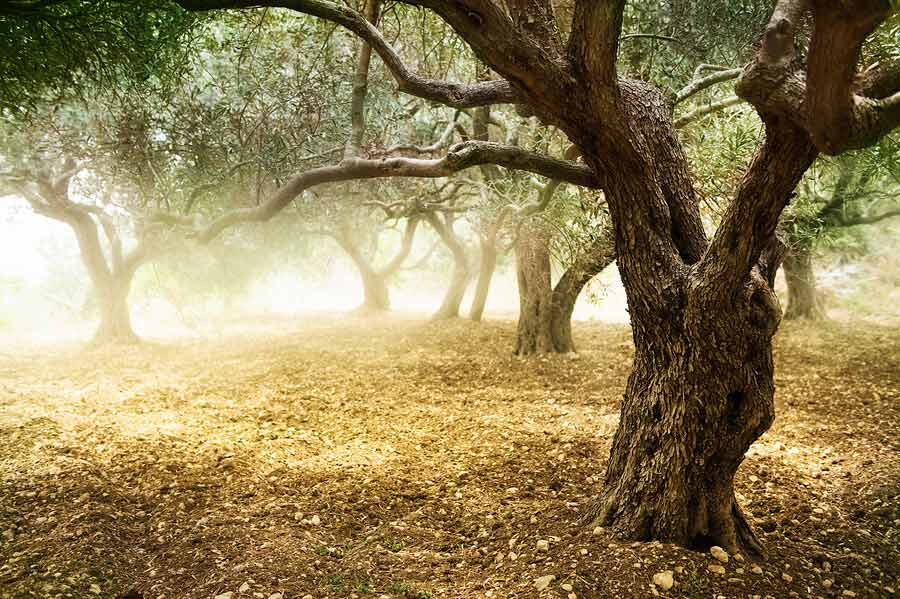“The foolish ones said to the wise. ‘Give us some of your oil; our lamps are going out.’ Matthew 25:8
When I was growing up, many people who owned land, either a small amount or large, were hoping liquid gold might be found underneath it. Oil wells sprouted up in many places and small to large fortunes were made. Striking oil on your land could make you rich overnight. But if you were to produce your own oil, it is another proposition altogether. In the parable of the Ten Virgins (Matthew 25) which Jesus told the week of His crucifixion, there is a relevant analogy between the five foolish virgins and the five wise concerning their procurement of oil.
Striking oil is something which happens suddenly, a gusher, when the land is drilled and an oil pocket is tapped. Oil is there if God, through His provident nature, has created a pocket of it due to the natural processes of pressure upon the ingredients of once living matter, coupled with thousands of years. On the other hand, producing oil, such as the olive oil in view in the parable Jesus tells is a process that incorporates preparing the land, planting trees from seedlings or seeds, cultivating, watering, personally tending over years, picking the crop once the trees are mature, and extracting oil from the fruit. The producer of this oil is intimately involved in the process. This gets to the truth of what Jesus is conveying.
The audience to which He is speaking in His parable is the visible church. Remember, all ten virgins were going out to meet the Bridegroom. In other words, all ten were part of the life of the church at that time, Israel, God’s chosen people. Jesus describes some as wise, and some as foolish. The division of five and five is irrelevant; the point is there are some in each category within the visible church. Those who today are professing followers of Christ need to hear what He is saying, for He says it multiple times through other parables, though He really only needs to say it once. The visible church includes wheat and tares until the end of time, both genuine and false followers of Jesus mixed together. In these multiple parables the Savior expresses in different manner how the grain will be divided from the chaff at His return. He who has ears to hear must listen and act on faith, when preparation for His return is preeminent. This is why Jesus tells these parables, and the Holy Spirit records them in the Bible so every generation may read, hear, and act upon them.
The five foolish virgins apparently anticipated in any crisis of personal oil shortage they would experience some sudden “strike of oil to suffice their need. The five wise virgins apparently cultivated a harvest of oil in intimate relationship with the oil-creator, receiving in their spirit the fruit of a sufficiency of oil ready to meet and welcome the Bridegroom; whenever He would come, especially, as He foretold, suddenly. Jesus is saying the church not only consists of the foolish, but those who take the Savior’s commandments, promises, and words seriously (genuinely), resulting in a spiritual transformation in their being from foolish to wise. The Holy Spirit is present within the wise making it evident to them as well as others: “The Spirit bears evidence with my spirit that I am a child of God.
So here it is impressed upon every professing follower of Jesus not to allow him or herself to live under the pernicious illusion he or she will receive a “strike of oil at the necessary time, ushering them into the banquet of heaven; an illusion based on a mischaracterization of a loving God they believe allows for spiritual laziness and false devotion. Be honest and humble in your self-analysis. This is Jesus’ teaching point in His parable of a not-to-be-ignored warning. The result: the wise entered into the wedding feast, and the foolish were locked outside with the words of the Bridegroom ringing in their ears, “I do not know you! (See Matthew 7:22-23)
I pray, do not count on an errantly anticipated, and disingenuous “strike of oil at the sudden return of the Savior; rather, defy procrastination, and cultivate your oil through an earnest pursuit of Jesus Christ. Pursue Him as the most important love of your life. “True love does not demand a reward, but it deserves one. Surely no one offers to pay for love; yet some recompense is due to one who loves, and if his love endures he will doubtless receive it (Bernard of Clairvaux) The oil of joy and gladness is the fruit of the true lover of the Bridegroom; oil which never runs out.
Stay Updated
Sign up for our monthly newsletter and weekly devotional










